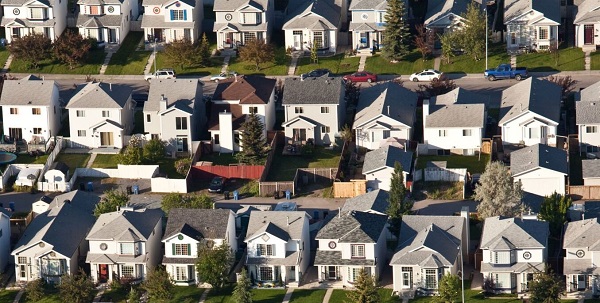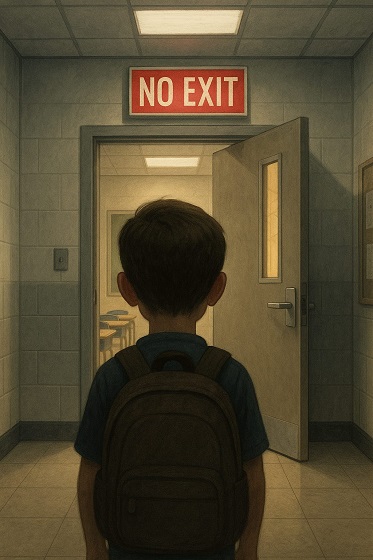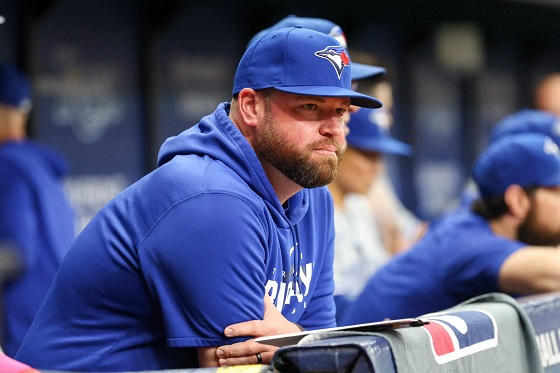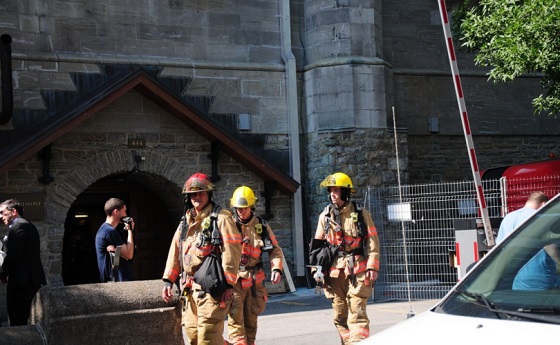Calgary
You Don’t Realize This, But You Do Have Faith, Just Like The Rest of Us

The human Ego is a fascinating force for both good and evil. Ego can drive someone’s greed, or it can drive innovation. It can cause destruction, or protect against it. Your ego is like a firearm, it’s only dangerous if you use it with hostile intentions, against good people.
Out of control, our Ego will demand that we be “right”, and will savagely resist being proven wrong. A weak Ego will cause us to brag about our accomplishments, and be offended when our weaknesses are exposed. A weak Ego will feel pain when our friends improve their lives, or outshine us. Instead of cheering you on, people with a weak ego will diminish your accomplishments so as to preserve their own identity.
Ego is a force amplifier for ignorance. Ignorance is the rejection of information, without examination…which is sometimes exhibited as faith.
Our personal belief system is almost entirely faith based, though most would argue vehemently otherwise, as if they were defending their children from a vicious animal. Most people like to think that their beliefs and decisions are based on logic, science, and previous experience, though that is rarely true. The truth is, upon close examination, our decisions are made largely based on our trust, or faith in what we believe to be a credible source.
Sources of faith:
- Our own judgement
- Our perception of what constitutes Science
- People with what we perceive to be “credentials”
- Books
- Gut instinct (intuition)
- The intuition of others
- Others who inspire confidence
- Our perception of history
- Our perception of our own personal experiences
- Those in authority
- The “News” from sources we judge to be “credible”
Social media is chaulked full of statements of “fact”, which are exclaimed as the unblemished “truth”. Often the phrase “credible sources” is used as a baton to beat senseless, those who question the validity of the sources. How short our memory seems to be, when our “credible sources” get it dead wrong time and time again, yet we continue to give credence to their blathering.
My question I’m asking you to ponder is this: What do you REALLY know for certain? If you were to make a list, it may look something like this:
- The world is a rotating sphere, in orbit around the sun, and is the 3rd rock from the sun.
- I am a human being
- Science is reliable and trustworthy
- Most Medical Doctors have our best interests at heart
- Perpetual motion is impossible
- Free energy does not exist
- The Covid19 Virus is very dangerous, and I should be afraid for myself and others
- Gravity works
- Aliens are not real
Pick any of the above, or choose a “fact” of your own, and I will show you how you don’t actually “know”, but instead you are assuming the truth in your belief.
Lets try the first one, “The world is a rotating sphere, in orbit around the sun, and is the 3rd rock from the sun”. Is this a belief, or is it a fact? I personally believe it is true, and I can make a strong argument as to why I believe it is true, however I can not prove this to be true, and neither can you.
- I am not an astrophysicist
- I have never personally been to space
- I can not prove that pictures from space are real, and undoctored…because I did not take them myself.
- I can’t prove that I’m not experiencing a computer generated simulation, and that I myself am only a computer program.
Although I trust that the world is very likely a sphere, I can not prove it. Instead, I prefer to trust the accounts of Astronauts who have gazed from space in wonder at the glory of creation. They say that the planet is a sphere, and I choose to believe them. I choose to have faith in both their honesty, and the accuracy of their perceptions.
If your information is not first hand…then no matter what the topic, you are putting your faith in your sources. If you’re not the scientist who did the research, or performed the experiments, then you are simply reciting what you were told. You don’t know..you are acting out of faith. If you are listening to the scientist who didn’t do the research, or perform the experiments, then you are basing your opinions on the second hand information of someone who doesn’t actually know.
Soctrates was reported as saying, “The only true wisdom, is in knowing that you know nothing”.
Do I know for a fact that this quote is from Socrates? Nope. I don’t know for sure, but I agree with the sentiment all the same. I don’t speak ancient Greek, nor do I know of anyone who does. I have not verified the authenticity of the volume in which this quote was recorded, nor do I personally know anyone who has. I’m guessing. I’m placing my faith in the internet, but I do not know for sure.
Humans like to be certain. Certain of their environment, level of safety, and of their personal identity. Often, we mistake people with higher education as being more certain, but unfortunately, having more information in your brain, doesn’t mean you have a higher understanding of that information. Nor does having information necessarily mean you have the ability to be totally objective. Objectivity is a skill which is accumulated only by those who have a high level of self awareness, and have the ability to accept new information instead of rejecting it without examination.
RE: Covid 19: We don’t know what is true, and what is not. All we can do is our best, but we must be cautious about the motives of our Government during this crisis. Now is not the time for blind faith in Government, it is the time for critical oversight. People with power tend to expand their power at every opportunity. Power is the greatest aphrodisiac known to humankind, and Government power has expanded around the Globe at an alarming pace. Is this all for our own good? I hope so. I also believe that now is the time for vigilance, and critical thinking. The cost of not thinking for ourselves, could be more than any of us are willing to pay.
Asking questions comes at a price. You will be socially shamed, accused of being a conspiracy theorist, and told to put on your tin-foil hat. Just know, the attacks are being generated by weak Egos, which NEED to be certain, and can not tolerate the uncertainty which results from asking questions. It’s not a personal attack on you, it’s a defense of their own fragile Ego…though it certainly feels personal.
It is curiosity, not certainty which is the sign of higher intelligence. The great part, is that you can CHOOSE to be curious, just as you can choose to pretend to be certain. Neither choices require either a high IQ, nor an advanced education.
Which do you choose?
For more stories, visit Todayville Calgary
Why Many Military Veterans Aren’t Scared, Instead They Are Prepared
Alberta
Gondek’s exit as mayor marks a turning point for Calgary

This article supplied by Troy Media.
The mayor’s controversial term is over, but a divided conservative base may struggle to take the city in a new direction
Calgary’s mayoral election went to a recount. Independent candidate Jeromy Farkas won with 91,112 votes (26.1 per cent). Communities First candidate Sonya Sharp was a very close second with 90,496 votes (26 per cent) and controversial incumbent mayor Jyoti Gondek finished third with 71,502 votes (20.5 per cent).
Gondek’s embarrassing tenure as mayor is finally over.
Gondek’s list of political and economic failures in just a single four-year term could easily fill a few book chapters—and most likely will at some point. She declared a climate emergency on her first day as Calgary’s mayor that virtually no one in the city asked for. She supported a four per cent tax increase during the COVID-19 pandemic, when many individuals and families were struggling to make ends meet. She snubbed the Dec. 2023 menorah lighting during Hanukkah because speakers were going to voice support for Israel a mere two months after the country was attacked by the bloodthirsty terrorist organization Hamas. The
Calgary Party even accused her last month of spending over $112,000 in taxpayers’ money for an “image makeover and brand redevelopment” that could have benefited her re-election campaign.
How did Gondek get elected mayor of Calgary with 176,344 votes in 2021, which is over 45 per cent of the electorate?
“Calgary may be a historically right-of-centre city,” I wrote in a recent National Post column, “but it’s experienced some unusual voting behaviour when it comes to mayoral elections. Its last three mayors, Dave Bronconnier, Naheed Nenshi and Gondek, have all been Liberal or left-leaning. There have also been an assortment of other Liberal mayors in recent decades like Al Duerr and, before he had a political epiphany, Ralph Klein.”
In fairness, many Canadians used to support the concept of balancing their votes in federal, provincial and municipal politics. I knew of some colleagues, friends and family members, including my father, who used to vote for the federal Liberals and Ontario PCs. There were a couple who supported the federal PCs and Ontario Liberals in several instances. In the case of one of my late
grandfathers, he gave a stray vote for Brian Mulroney’s federal PCs, the NDP and even its predecessor, the Co-operative Commonwealth Federation.
That’s not the case any longer. The more typical voting pattern in modern Canada is one of ideological consistency. Conservatives vote for Conservative candidates, Liberals vote for Liberal candidates, and so forth. There are some rare exceptions in municipal politics, such as the late Toronto mayor Rob Ford’s populistconservative agenda winning over a very Liberal city in 2010. It doesn’t happen very often these days, however.
I’ve always been a proponent of ideological consistency. It’s a more logical way of voting instead of throwing away one vote (so to speak) for some perceived model of political balance. There will always be people who straddle the political fence and vote for different parties and candidates during an election. That’s their right in a democratic society, but it often creates a type of ideological inconsistency that doesn’t benefit voters, parties or the political process in general.
Calgary goes against the grain in municipal politics. The city’s political dynamics are very different today due to migration, immigration and the like. Support for fiscal and social conservatism may still exist in Alberta, but the urban-rural split has become more profound and meaningful than the historic left-right divide. This makes the task of winning Calgary in elections more difficult for today’s provincial and federal Conservatives, as well as right-leaning mayoral candidates.
That’s what we witnessed during the Oct. 20 municipal election. Some Calgary Conservatives believed that Farkas was a more progressive-oriented conservative or centrist with a less fiscally conservative plan and outlook for the city. They viewed Sharp, the leader of a right-leaning municipal party founded last December, as a small “c” conservative and much closer to their ideology. Conversely, some Calgary Conservatives felt that Farkas, and not Sharp, would be a better Conservative option for mayor because he seemed less ideological in his outlook.
When you put it all together, Conservatives in what used to be one of the most right-leaning cities in a historically right-leaning province couldn’t decide who was the best political option available to replace the left-wing incumbent mayor. Time will tell if they chose wisely.
Fortunately, the razor-thin vote split didn’t save Gondek’s political hide. Maybe ideological consistency will finally win the day in Calgary municipal politics once the recount has ended and the city’s next mayor has been certified.
Michael Taube is a political commentator, Troy Media syndicated columnist and former speechwriter for Prime Minister Stephen Harper. He holds a master’s degree in comparative politics from the London School of Economics, lending academic rigour to his political insights.
Troy Media empowers Canadian community news outlets by providing independent, insightful analysis and commentary. Our mission is to support local media in helping Canadians stay informed and engaged by delivering reliable content that strengthens community connections and deepens understanding across the country
Alberta
Calgary’s High Property Taxes Run Counter to the ‘Alberta Advantage’

By David Hunt and Jeff Park
Of major cities, none compare to Calgary’s nearly 50 percent property tax burden increase between censuses.
Alberta once again leads the country in taking in more new residents than it loses to other provinces and territories. But if Canadians move to Calgary seeking greater affordability, are they in for a nasty surprise?
In light of declining home values and falling household incomes amidst rising property taxes, Calgary’s overall property tax burden has skyrocketed 47 percent between the last two national censuses, according to a new study by the Aristotle Foundation for Public Policy.
Between 2016 and 2021 (the latest year of available data), Calgary’s property tax burden increased about twice as fast as second-place Saskatoon and three-and-a-half times faster than Vancouver.
The average Calgary homeowner paid $3,496 in property taxes at the last census, compared to $2,736 five years prior (using constant 2020 dollars; i.e., adjusting for inflation). By contrast, the average Edmonton homeowner paid $2,600 in 2021 compared to $2,384 in 2016 (in constant dollars). In other words, Calgary’s annual property tax bill rose three-and-a-half times more than Edmonton’s.
This is because Edmonton’s effective property tax rate remained relatively flat, while Calgary’s rose steeply. The effective rate is property tax as a share of the market value of a home. For Edmontonians, it rose from 0.56 percent to 0.62 percent—after rounding, a steady 0.6 percent across the two most recent censuses. For Calgarians? Falling home prices collided with rising taxes so that property taxes as a share of (market) home value rose from below 0.5 percent to nearly 0.7 percent.
Plug into the equation sliding household incomes, and we see that Calgary’s property tax burden ballooned nearly 50 percent between censuses.
This matters for at least three reasons. First, property tax is an essential source of revenue for municipalities across Canada. City councils set their property tax rate and the payments made by homeowners are the backbone of municipal finances.
Property taxes are also an essential source of revenue for schools. The province has historically required municipalities to directly transfer 33 percent of the total education budget via property taxes, but in the period under consideration that proportion fell (ultimately, to 28 percent).
Second, a home purchase is the largest expense most Canadians will ever make. Local taxes play a major role in how affordable life is from one city to another. When municipalities unexpectedly raise property taxes, it can push homeownership out of reach for many families. Thus, homeoowners (or prospective homeowners) naturally consider property tax rates and other local costs when choosing where to live and what home to buy.
And third, municipalities can fall into a vicious spiral if they’re not careful. When incomes decline and residential property values fall, as Calgary experienced during the period we studied, municipalities must either trim their budgets or increase property taxes. For many governments, it’s easier to raise taxes than cut spending.
But rising property tax burdens could lead to the city becoming a less desirable place to live. This could mean weaker residential property values, weaker population growth, and weaker growth in the number of residential properties. The municipality then again faces the choice of trimming budgets or raising taxes. And on and on it goes.
Cities fall into these downward spirals because they fall victim to a central planner’s bias. While $853 million for a new arena for the Calgary Flames or $11 million for Calgary Economic Development—how City Hall prefers to attract new business to Calgary—invite ribbon-cuttings, it’s the decisions about Calgary’s half a million private dwellings that really drive the city’s finances.
Yet, a virtuous spiral remains in reach. Municipalities tend to see the advantage of “affordable housing” when it’s centrally planned and taxpayer-funded but miss the easiest way to generate more affordable housing: simply charge city residents less—in taxes—for their housing.
When you reduce property taxes, you make housing more affordable to more people and make the city a more desirable place to live. This could mean stronger residential property values, stronger population growth, and stronger growth in the number of residential properties. Then, the municipality again faces a choice of making the city even more attractive by increasing services or further cutting taxes. And on and on it goes.
The economy is not a series of levers in the mayor’s office; it’s all of the million individual decisions that all of us, collectively, make. Calgary city council should reduce property taxes and leave more money for people to make the big decisions in life.
Jeff Park is a visiting fellow with the Aristotle Foundation for Public Policy and father of four who left Calgary for better affordability. David Hunt is the research director at the Calgary-based Aristotle Foundation for Public Policy. They are co-authors of the new study, Taxing our way to unaffordable housing: A brief comparison of municipal property taxes.
-

 Business2 days ago
Business2 days agoCarney shrugs off debt problem with more borrowing
-

 Alberta1 day ago
Alberta1 day agoWhen Teachers Say Your Child Has Nowhere Else to Go
-

 Automotive2 days ago
Automotive2 days agoThe high price of green virtue
-

 Addictions1 day ago
Addictions1 day agoCanada is divided on the drug crisis—so are its doctors
-

 Bruce Dowbiggin1 day ago
Bruce Dowbiggin1 day agoMaintenance Mania: Since When Did Pro Athletes Get So Fragile?
-

 Daily Caller2 days ago
Daily Caller2 days agoProtesters Storm Elite Climate Summit In Chaotic Scene
-

 MAiD2 days ago
MAiD2 days agoQuebec has the highest euthanasia rate in the world at 7.4% of total deaths
-

 National1 day ago
National1 day agoConservative bill would increase penalties for attacks on places of worship in Canada









